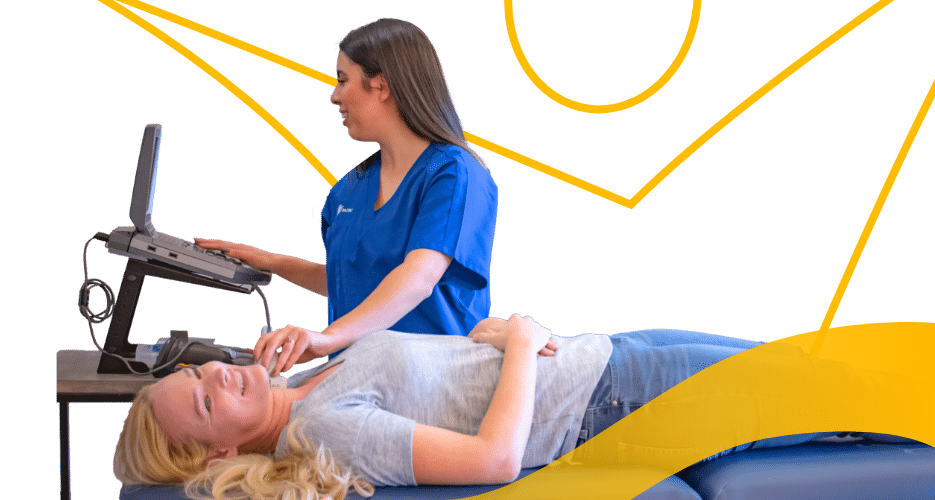The Importance of Lifeline Screening A Comprehensive Guide.
Lifeline screening is a preventive health service that offers affordable and convenient health screenings to help individuals identify potential health risks before they become serious problems. With the rise in chronic diseases and the aging population, it has become increasingly important for people to take control of their health and make informed decisions about their well-being. In this guide, we will explore the various aspects of lifeline screening, including its benefits, how to use it, and comparisons with other health screening methods.
What is Lifeline Screening?

Lifeline screening is a company that provides a range of preventive health services, including screenings for heart disease, diabetes, high blood pressure, and other conditions. These screenings use advanced technology and are conducted by highly trained healthcare professionals. The goal of lifeline screening is to detect potential health issues at an early stage, allowing individuals to take proactive measures to improve their health and prevent further complications.
The Benefits of Lifeline Screening
The primary benefit of lifeline screening is early detection. By identifying potential health risks, individuals can take steps to address them before they develop into more serious conditions. This can lead to better health outcomes and a higher quality of life. Additionally, lifeline screening is convenient and affordable, making it accessible to a wide range of individuals. The screenings are non-invasive and do not require any special preparation or fasting, making them quick and easy to complete.
How Lifeline Screening Works
Lifeline screening uses a variety of screening methods, depending on the type of test being conducted. Some of the most common screening methods include ultrasound, finger-stick blood tests, and electrocardiograms. These tests are painless and non-invasive, making them suitable for people of all ages. The results of the screenings are typically available within a few days, allowing individuals to take prompt action if necessary.
Using Lifeline Screening
To use lifeline screening, individuals can visit the company’s website and schedule an appointment at a location near them. The company has over 15,000 community-based screening events each year, making it easy for people to access their services. During the appointment, a trained healthcare professional will conduct the selected screenings, and the results will be sent to the individual within a few days. It is recommended to consult with a doctor after receiving the results to discuss any potential health concerns and to develop a plan for follow-up care if needed.
Types of Lifeline Screenings

Lifelinescreening offers a variety of health screenings to help individuals identify potential health risks. Some of the most common ones include:
1. Heart Disease Screening
Heart disease is the leading cause of death worldwide, and early detection is crucial in preventing heart attacks and strokes. The heart disease screening offered by lifelinescreening includes tests such as carotid artery ultrasound, which measures the blood flow in the arteries that supply blood to the brain, and an abdominal aortic aneurysm screening, which checks for bulging in the aorta, the largest artery in the body.
Click here for more information and to get a discout
How to Use Lifeline Screening for Heart Disease
Individuals who have a family history of heart disease or have risk factors such as high cholesterol or high blood pressure should consider getting a heart disease screening from lifelinescreening. The results can help them make necessary lifestyle changes or seek treatment if needed.
Examples of Lifeline Screening for Heart Disease
John, a 55-year-old man, has a family history of heart disease and has been experiencing chest pain. He decides to undergo a heart disease screening from lifelinescreening, which detects a blockage in one of his coronary arteries. With the results, John’s doctor is able to quickly perform an angioplasty procedure, saving him from a potential heart attack.
2. Diabetes Screening
Diabetes is a common chronic disease that affects millions of people worldwide. Lifelinescreening offers a diabetes screening that includes a finger-stick blood test to measure blood sugar levels and an A1C test, which gives an average of blood sugar levels over the past three months.
How to Use Lifeline Screening for Diabetes
Individuals who have a family history of diabetes or are overweight should consider getting a diabetes screening from lifelinescreening. The results can help them make necessary dietary and lifestyle changes to manage their blood sugar levels and prevent complications.
Examples of Lifeline Screening for Diabetes
Samantha, a 40-year-old woman, has a family history of type 2 diabetes and has been experiencing fatigue and increased thirst. She decides to undergo a diabetes screening from lifelinescreening, which detects elevated blood sugar levels. With the results, Samantha is able to make dietary changes and monitor her blood sugar levels, preventing the development of diabetes.
3. High Blood Pressure Screening
High blood pressure, also known as hypertension, is another common health condition that affects many people. It is often called the “silent killer” because it usually has no symptoms but can lead to serious complications such as heart attack and stroke. Lifelinescreening offers a high blood pressure screening that uses a painless, non-invasive method to measure blood pressure in both arms.
How to Use Lifeline Screening for High Blood Pressure
Individuals who have a family history of high blood pressure or are over the age of 40 should consider getting a high blood pressure screening from lifeline screening. The results can help them make necessary lifestyle changes to manage their blood pressure and prevent complications.
Examples of Lifeline Screening for High Blood Pressure
Eric, a 60-year-old man, has a family history of high blood pressure and has been feeling dizzy and lightheaded lately. He decides to undergo a high blood pressure screening from lifelinescreening, which detects elevated blood pressure readings. With the results, Eric is able to make lifestyle changes such as reducing his salt intake and incorporating more exercise into his daily routine.
How Does LifelineScreening Compare to Other Health Screening Methods?
Lifeline screening offers a comprehensive range of health screenings, making it an attractive option for many individuals. However, there are other types of health screening methods available, such as:
1. Clinic-Based Screenings
Clinic-based screenings are usually conducted at a doctor’s office or hospital and may involve more invasive procedures such as biopsies or imaging tests. While these screenings can provide more detailed information, they can also be costly and time-consuming.
2. Home Test Kits
Home test kits allow individuals to collect samples at home and send them to a lab for analysis. These tests are convenient, but they may not provide as much information as clinic-based or lifeline screenings.
In comparison, lifelinescreening offers a balance between convenience, affordability, and comprehensiveness. The non-invasive nature of their screenings and the wide range of services make it a popular choice among individuals looking to take control of their health.
Click here for more information and to get a discout
Tips for Using LifelineScreening Effectively
To get the most out of your lifeline screening experience, consider the following tips:
- Research the different types of screenings offered by lifelinescreening to determine which ones are most suitable for you.
- Make sure to follow any instructions provided by lifelinescreening before your appointment, such as fasting if required for certain tests.
- Consult with your doctor after receiving the results to discuss any potential health concerns and develop a plan for follow-up care if needed.
FAQs about Lifeline Screening
Q: Is lifeline screening covered by insurance?
A: Lifeline screening is not typically covered by insurance, but some plans may cover certain screenings. It is best to check with your insurance provider for coverage details.
Q: Can I eat or drink before a lifelinescreening?
A: It depends on the type of screening. Some tests may require fasting beforehand, so it is best to follow any instructions provided by lifeline screening before your appointment.
Q: Is lifelinescreening safe?
A: Yes, lifeline screening uses non-invasive methods that are considered safe for most individuals. However, if you have any concerns or medical conditions, it is best to consult with your doctor before undergoing any screenings.
Q: Who should consider getting a lifelinescreening?
A: Lifelinescreening is suitable for adults of all ages, but it may be particularly beneficial for those who have a family history of certain health conditions or have risk factors such as high blood pressure or high cholesterol.
Q: How often should I get a lifeline screening?
A: It depends on your individual health status and risk factors. Discuss with your doctor to determine the frequency of screenings that is appropriate for you.
Conclusion
Lifeline screening is a valuable resource for individuals looking to take a proactive approach to their health. By providing affordable and convenient health screenings, lifeline screening can help identify potential health risks and allow individuals to take necessary steps to improve their well-being. With its wide range of services and non-invasive methods, lifeline screening offers a comprehensive and accessible option for preventive health care. Remember, early detection is key in maintaining good health, so don’t hesitate to schedule a lifeline screening today.

